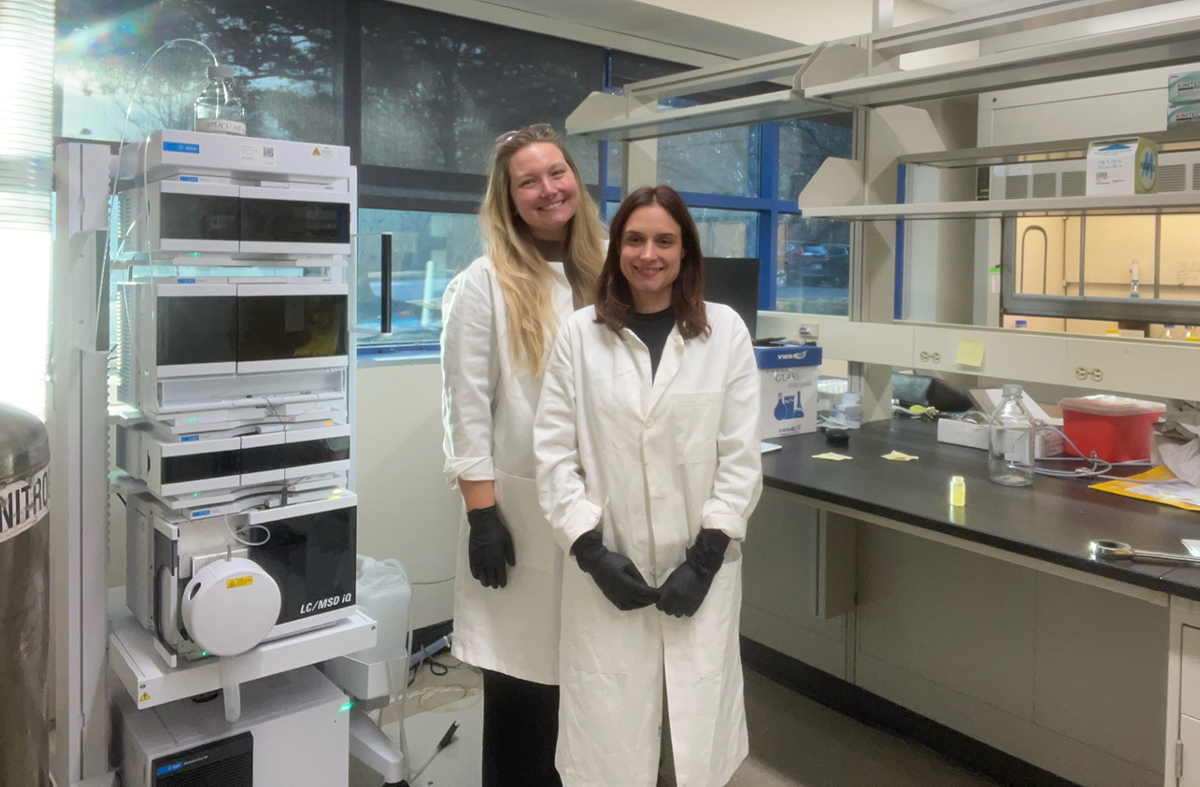
Chief Executive Officer Ariane Vasilatis and Chief Scientific Officer Eileen Carry co-founded Zena Therapeutics Inc.
Since graduating from Rutgers in 2021 with a doctorate in plant science with a concentration in human health and natural product chemistry, Ariane Vasilatis has focused on helping those with addiction and substance dependence.
Using her deep research experience in plant-derived pharmacotherapies, Vasilatis co-founded Zena Therapeutics Inc., a Rutgers startup that strives to create narcotic medications that will minimize or even eliminate overdoses from prescription drugs. Vasilatis serves as Chief Executive Officer and is co-founder of the startup with Eileen Carry, the chief scientific officer, who earned a doctoral degree from the Ernest Mario School of Pharmacy’s Department of Medicinal Chemistry in 2021.
Personal tragedy motivated them to embark on this venture.

Ariane Vasilatis earned a doctoral degree in plant science in 2021 from Rutgers School of Graduate Studies.
“Like Dr. Carry, I had my own experiences with friends and family struggling and succumbing to addictions and knew there had to be a better way that we could address and at least try to eliminate these outcomes. Basically, we saw it as our duty to roll up our sleeves and get to work,” Vasilatis said.
They were pursuing their doctoral degrees from Rutgers at the same time and worked together in the New Use Ag and Natural Plant Products (NUAPP) lab, which is a part of the Department of Plant Biology at the School of Environmental and Biological Sciences (SEBS). The lab brings together botany, ethnobotany, environmental science horticulture, agronomy, genetics, chemistry, food science and medicinal chemistry into a single unique program. The goal is to develop new crops and identifying new compounds that are of potential health or commercial interest.
Armed with an undergraduate degree in chemistry from the Rutgers School of Arts and Sciences in 2014, Vasilatis started conducting research in natural products chemistry as a plant science graduate student working at the NUAPP lab, helping to analyze and develop the use of essential oils to deter post-harvest small berry rot.
“My focus in my dissertation was to decrease loss of fresh fruit during transport using essential oils and modifying atmospheric conditions to deter spoilage organism growth. I also conducted chemical analyses for basil and hemp to aid in breeding efforts and had an early start in identifying vitamin profiles of African indigenous vegetables.”
According to Vasilatis, “the NUAPP lab is definitely cut from a different cloth when compared to most other academic labs. Dr. Jim Simon (Distinguished Professor) is very entrepreneurially coded and is open-minded when it comes to research ideas. You are free to present an idea and run with it if you are able to identify funding sources—it was like our first introduction to pitching. This type of thinking, paired with our academic goals, was the perfect set up for Eileen and me to have the confidence to go out on this venture.”
It was during this period at NUAPP that Vasilatis met Carry, who at the time was researching safer medications for addiction and mental health. Carry’s findings led her to develop “novel compositions of matter that target the gamma-aminobutyric acid receptor, the major inhibitory receptor of the brain, which has been the target of anti-anxiety, seizure, and alcohol withdrawal medications,” explained Vasilatis.
Carry’s discovery addressed a critical gap in current anxiety medications and laid the foundation for Zena Therapeutics’ work. Vasilatis describes their journey to forming the start-up company in 2021.
“In the beginning we were still both working at Rutgers as post-docs applying to many funding sources so that we could fully spin out of the university. It was pretty nerve racking, I like to think of the first few years as “scrounging for quarters in the couch cushions” because that is what it felt like. However, we had so much support from the university, our professors, and the larger entrepreneurial network that it felt a little less isolating. Finally in 2023 we received venture capital backing and were able to “fly from the nest,” if you will. This was also a bit scary but invigorating at the same time because we were really doing it.”
As to what’s next for Zena Therapeutics, Inc? “We’re currently conducting our proof of concept and pre-clinical studies and will hopefully be in the clinic in the next few years. We look forward to helping as many people as possible,” said Vasilatis.

